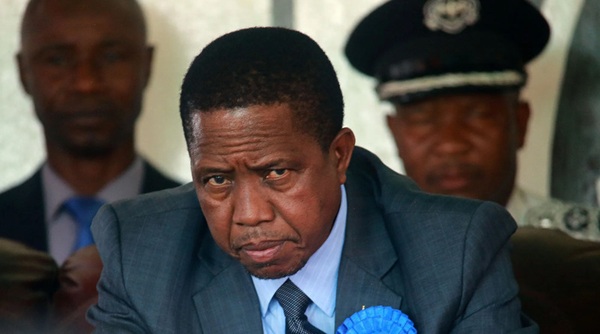The ongoing funeral standoff between the family of former Zambian President Edgar Lungu and what should ordinarily be a state funeral for the ex-president rages on as the repatriation of his body from South Africa where he passed is still delayed for a second time in a feud with the country’s current leader over the details of the funeral.
The family’s lawyer said that they would not bring Lungu’s body home as planned on Wednesday because they don’t want President Hakainde Hichilema to attend Lungu’s funeral. Lungu and Hichilema were bitter political rivals.
Lungu family lawyer Makebi Zulu said it was Lungu’s wish that Hichilema “should not be anywhere near” his body when he is buried.
“It is our hope that someday his remains will be repatriated back home and buried,” Zulu said.
Lungu’s body was initially due to be repatriated last weekend following seven days of national mourning, but the family didn’t allow that because of disagreements over the funeral program. His body was then due to return home to the southern African country this week for a procession ahead of a rescheduled state funeral on Monday.
Hichilema has offered his condolences to the family and said it should be a time for the country to show unity. Information Minister and government spokesperson Cornelius Mweetwa said the government “remains hopeful” that the issue will be resolved.
Lungu, 68, died in a South African hospital of an undisclosed illness on June 5 and was meant to be honoured with a state funeral, which Hichilema was due to preside over.
Lungu beat Hichilema in the 2016 election. Hichilema was then imprisoned for four months in 2017 and accused of treason by Lungu’s government for his motorcade not giving way to Lungu’s on a road.
Their rivalry continued in the 2021 presidential election, which was won by Hichilema.
Last year, Lungu, who remained influential in politics, accused Hichilema’s government of using the police to harass him and restrict his movements. His family also said the government initially prevented him from travelling to South Africa for treatment, a charge the government denied.

